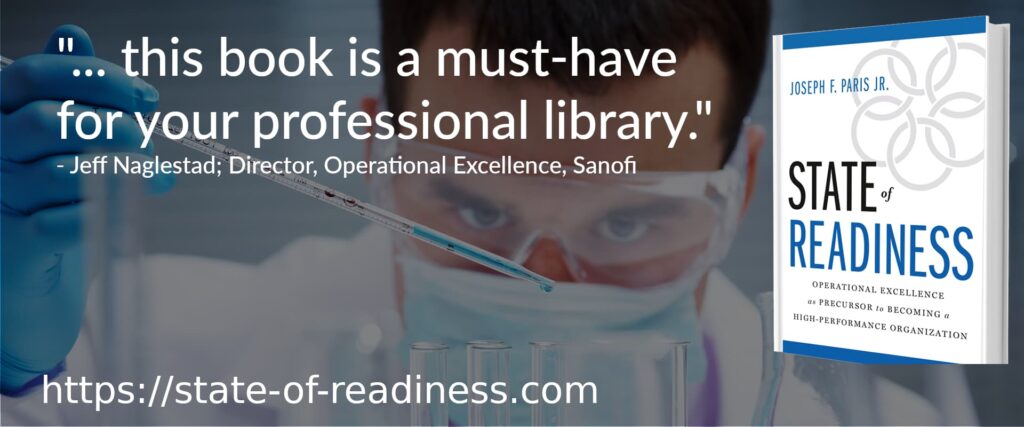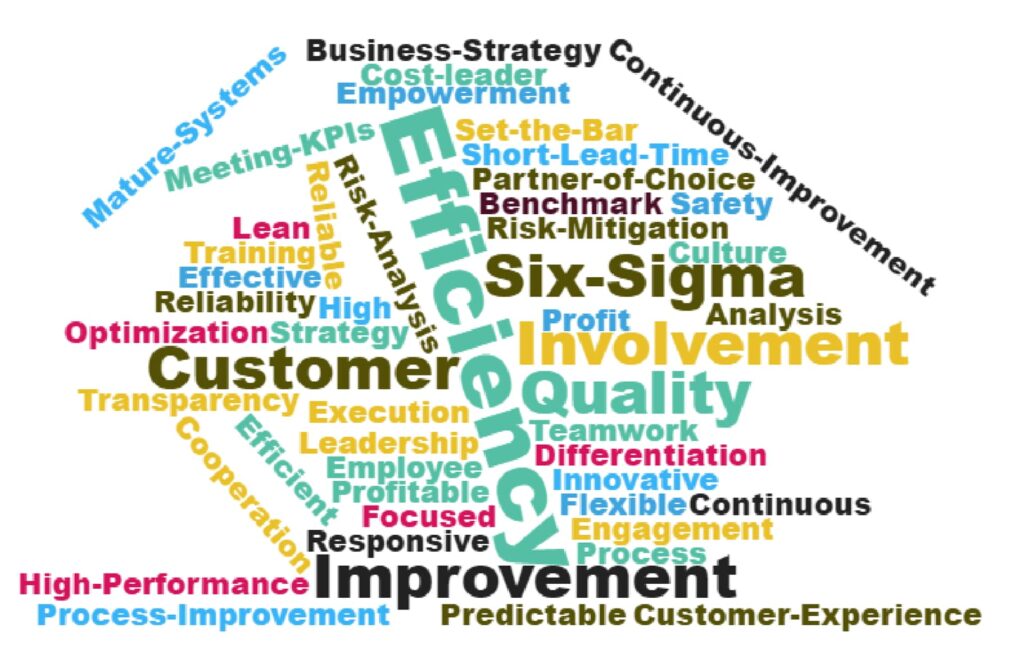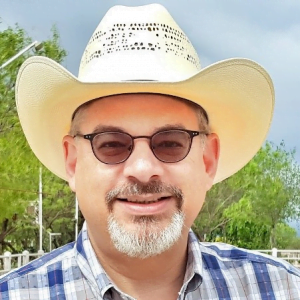The 9 Questions to Ask
Jun 17, 2022
Summary: Most companies preparing to launch an Operational Excellence Program do not take a moment to contemplate what their program is hoping to achieve, or even if what they are hoping to achieve is what the company truly needs. These 9 Questions, asked of all the right people, help to get your program properly aligned and, in turn, receive the commitment necessary to be successful.
My firm and I get hired by many organizations to help them design and deploy (or redesign and redeploy is more likely) Operational Excellence (or Continuous Improvement) programs and we have been successfully doing so for 20 years or so. I won’t go as far as saying we are the “best”; because what does that really mean? But I am comfortable saying we are darn good at it and have a lot of experience from around the world and across industries.
My experience is most of the firms who hire us actually don’t know what it is they want; what they expect their Operational Excellence programs to accomplish in absolute terms. They just know they are in a place that is unsatisfactory and know they need to change. But to what? And how?
Where I start is an assessment. But not an assessment as to how they will design and deploy their operational excellence program, but what business factors they are facing, why they want to change, what they want to change into, and what success will look like.
The assessment I perform will include as respondents; the entire C-Suite, all the Senior Executives, and all the Program Stakeholders. If anyone is missing or wants to “opt-out”, I know that person will be a challenge that needs to be overcome. If enough people want to “opt-out”, then it is a sure sign that the program is in trouble before it even starts.
Before I get into the questions I am going to share below and their importance, it is necessary to understand that – although I am speaking about designing and deploying an “Operational Excellence program” – these 9-Questions can be adapted to serve as the interview questions for any program under consideration.
Certainly, the term “continuous improvement” (the more elementary form of operational excellence) could be easily substituted to the same benefit. But the terms “health and safety”, “quality”, “sustainability” or and any other term for a business program could also be substituted to similar success in creating alignment and gaining commitment (which is the goal).

Question 1: What is the company’s vision for the future?
This is the first question I ask in my assessment interviews. Is there a crystal clear vision of the future that is universally understood in absolute terms and held by all? The efforts of the Operational Excellence program should serve as an accelerant for achieving this vision.
For example, I was working with a company’s Operational Excellence team and I asked them what the company’s vision of the future was. After a moment of silence, one brave soul volunteered that “They were going to be the Number-1 [fill in the blank] provider in all of Europe.” Of course, everyone nodded their heads in agreement.
But then I asked that they write-down what “Number-1” meant. The person attached for finance wrote “most profitable”, from marketing it was “largest market” share, from logistics it was “100% on-time deliveries”, and so on. Each person interpreted what “Number-1” meant from the purview of their domain. And with such divergence as to what was important meant that alignment could not and would not be achieved. And without alignment, there is no commitment.
I am certain (at least I must assume) when the President of the company addressed its employees and shared that the company was “going to be the Number-1 [fill in the blank] provider in all of Europe” he understood in absolute terms what being “Number-1” meant. But by not being explicit enough, the President left what being “Number-1” meant to the imagination of the individual employees. And they naturally internalized the meaning to be from what was within their purview.
Not a good foundation for gaining alignment.
Question 2: Did you ever hear of the term Operational Excellence?
I ask this rather simple “softball” question to disarm the person I am interviewing and to gauge whether the people with whom I am speaking have ever heard of the term. Rarely (if ever) has a person shared that they had not; especially since they know I am interviewing them about their soon-to-be Operational Excellence program.
Question 3: What does Operational Excellence mean to you?
This is a great follow-on question. What I usually get is a “word salad”; a bunch of words all mixed together. Sometimes someone will give some formal definition they might have memorized, but when I ask what it means, they are usually at a loss. In any case, at the conclusion of all the assessment interviews, there is scant commonality amongst the respondents of what Operational Excellence means to the company as a whole.

Question 4: Do you know that there is to be an Operational Excellence program launched at your company?
This is another softball question that serves two purposes; i) to remove some of the anxiety that might have built-up from the struggles answering the previous question by giving them an easy one, and ii) to actually determine if everyone has been made aware that an Operational Excellence program is going to be launched at the company.
Almost always, everyone knows that an Operational Excellence program is to be launched; especially since they know I am interviewing them about their soon-to-be Operational Excellence program. But this is not always the case.
At one company where I was conducting assessment interviews, the Director of Human Resources was not aware that an Operational Excellence program was being launched. I found this both odd and alarming since the success or failure of such a program depends upon the engagement of the people, and this being the domain of Human Resources.
Question 5: What do you believe are the program’s success factors, ambitions? How can you tell if you are winning?
This is another great follow-on question. And again, I usually get a “word salad”. Many, but not all, will offer some tangible KPI. Some will offer a description. But again, at the conclusion of all the assessment interviews, there is scant commonality amongst the respondents of how the success of the program would be determined or what it is supposed to accomplish.
Question 6: If the Financial Times [or some prominent or local newspaper] were to dedicate a special “extra” edition to the success of your program, what would the headline read? What would some of the stories be about?
This is probably the most powerful question in the series of questions asked during the assessment interviews. It causes the respondent to distill their “word salad” to a headline that consists of only a very few words.
Think of all the famous headlines; “Kennedy Slain”, “Man Walks on the Moon”, “Nixon Resigns”, “Reagan Shot”, “Berlin Wall Tumbles” and so on… Each told the story without need for further explanation for the reader to understand what had happened.
Of course, there are always articles that support the main headline. And each article also has its own succinct headline. What would some of these supporting stories be about?
There might be some commonality in the headlines (even if not worded precisely the same), but most of these are very high-level (think, “The company achieves being Number-1…” fill-in-the-blank) and not indicative of any real alignment existing. And there is usually a lack of commonality amongst the respondents of what the stories might be about.
Question 7: What are the three most important strategic initiatives you are working on this year?
This question is simple enough and the respondents usually can share their top-three strategic initiatives that they are working on for the year. But sometimes, they start sharing that there are more than three strategic initiatives they are working on for the year (sometimes many more) and they are finding it a challenge to list just the top three.
My experience has been that if there are much more than three strategic initiatives that a person is working on for the year, they are going to have a difficult time prioritizing and completing them. In fact, they run the risk of not completing any of them.
And if the Operational Excellence Program isn’t one of the top-three strategic initiatives that the person is going to be working on for the year, the chances of them committing to the program are close to nil (unless something changes). This is not to say that the person will be against the program, just that you will not be able to count on that person to allocate any resources or attention. Plan accordingly.
Question 8: What is slowing you down or in your way?
This is an opportunity for the respondent to share the challenges they are personally facing in accomplishing their strategic initiatives for the year. The source of the friction might be external to them (ex. lack of support, resources, and so on), external to the company as a whole (ex. supply chain issues), or even themselves (ex. competing priorities, personal issues, and so on).
Question 9: What questions do you have of me?
After all of this, there will no doubt be questions that the respondents would like to ask me, and I give them the opportunity to have those questions answered. Some of the questions will be more transactional and forensic; clarifications, timelines, and the like. Some will no doubt betray a level of anxiety; what is expected of me? I have so much to do already, how will I fit this into my already overburdened schedule? How will this effect the prioritization of my efforts, and so on.
The transactional and forensic are usually straight-forward to the extent that they can be known at this point. Remember, this is the initial assessment and discovery. As such, some details will not be known and it is essential to be completely transparent as to; what is known, what is believed, what is thought, and what is unknown.
Similarly, when it comes to commitment. I like to tell concerned respondents that my approach is to “not give someone something else to do unless I take something away.” It’s only fair. After all, it’s not like anyone has a lot of free time on their hands; at least not that I have ever seen.
What’s next?
This is the challenge. My experience has been that the expectations of the Operational Excellence program – the challenges faced by both the individual respondents and the company as a whole as well as what is important and what is not (as) important – are going to vary greatly. And we must always remember; if everything is a priority, then nothing is a priority.
What I must do is find the “golden thread” from among the responses; the business factors and challenges faced, and the aspirations that are most shared among the respondents. I present this as the “lighthouse”, the goal of the program and where the emphasis might be first applied.
Before proceeding further, the senior leadership must agree that the lighthouse represents the course to take and that progress towards it is the desired outcome. If not, we must do further analysis until agreement is reached. Without this agreement, there will be no alignment. And without alignment, there will be no commitment. And without alignment and commitment, only doom awaits.
And it is critical to note that this lighthouse is not fixed nor permanent (it also should not change too often). A quarterly review should be conducted to ensure (at the highest level) that the major business factors and success factors on which the Operational Excellence program is based has not changed. In addition, a deeper annual review should also ensure the efforts are properly aligned to the lighthouse.
It is imperative to finish anything that is started. There is nothing that can erode confidence in an Operational Excellence program faster than the continuous resetting of priorities. You don’t want to be the one at the annual review who tells senior leadership that many efforts have been initiated but nothing was completed because of redirects. Senior leadership will only hear “we didn’t complete anything”. Don’t allow yourself to be in the position to deliver that message.
Once we understand the lighthouse (the desired outputs or outcomes), then we can start working on the plan (the required inputs). The design work is done. Now it’s time to engineer and build.
About the author
Joseph Paris is an international expert in the field of Operational Excellence, organizational design, strategy development and deployment, and helping companies become high-performance organizations. His vehicles for change include being the Founder of; the XONITEK Group of Companies; the Operational Excellence Society; and the Readiness Institute.
He is a sought-after speaker and lecturer and his book, “State of Readiness” has been endorsed by senior leaders at some of the most respected companies in the world.
Click here to learn more about Joseph Paris or connect with him on LinkedIn.
Original Article: https://opexsociety.org/body-of-knowledge/the-9-questions-to-ask/
Stay In Touch.
Subscribe to our newsletter and exclusive Leadership content.
We respect your privacy and won’t spam your inbox

